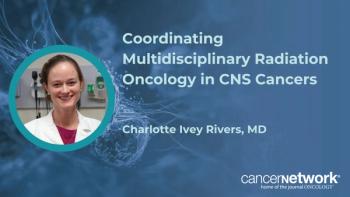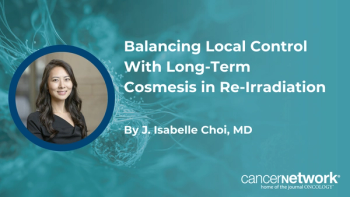
One ‘Serious Question’ Helps Clinicians Identify Patients Nearing End of Life
A simple one-question tool may help oncologists more accurately predict cancer patients’ prognoses and know when to initiate end-of-life discussions.
A simple one-question tool may help oncologists more accurately predict cancer patients’ prognoses and know when to initiate end-of-life discussions, according to a study presented this week at the 2015 American Society of Clinical Oncology (ASCO) Palliative Care in Oncology Symposium in Boston.
Investigators asked 76 cancer care specialists at the Dana-Farber Cancer Institute in Boston, including oncologists, nurse practitioners, and physician assistants, to answer the so-called surprise question: “Would you be surprised if this patient died within the next year?” after each visit. Clinicians answered “yes” to 83% and “no” to 17% of a total of 4,617 patient encounters.
“Yes” answers proved to be correct 95% of the time while “no” answers were accurate for 62% of patients who died over the next year. Using statistical modeling, researchers determined that the surprise question was more predictive of patient death than other variables, such as type of cancer, age, cancer stage, or time since diagnosis.
The surprise question was developed in the 1990s but it has never been tested extensively in the cancer care setting, researchers said. Currently, there is no universally accepted standard for how to identify seriously ill patients early enough in the disease process to allow for meaningful, ongoing dialogues about patients’ goals, values, and priorities.
“It can be challenging for clinicians to determine which patients they should begin discussions with about end-of-life preferences. This study indicates that the answer to a single question can be an important indicator of prognosis,” said Don S. Dizon, MD, an expert with ASCO who moderated a presscast announcing the findings. “With this tool, physicians can harness their clinical impressions to plan the most appropriate care for each patient.”
Researchers noted that further study is needed to determine why the surprise question failed to identify about 40% of patients who died within a year. They plan to
Investigate clinician characteristics that might affect how accurately they answer the question as well as characteristics associated with patients who either lived longer or died sooner than expected.
The study is part of a 4-year randomized controlled trial led by Adriane Labs, a joint center of Brigham and Women’s Hospital and the Harvard T.H. Chan School of Public Health in Boston. It is testing the effectiveness of the Serious Illness Care program, which offers education and coaching to clinicians on when and how to initiate end-of-life discussions based on best practices in palliative care.
Newsletter
Stay up to date on recent advances in the multidisciplinary approach to cancer.












































